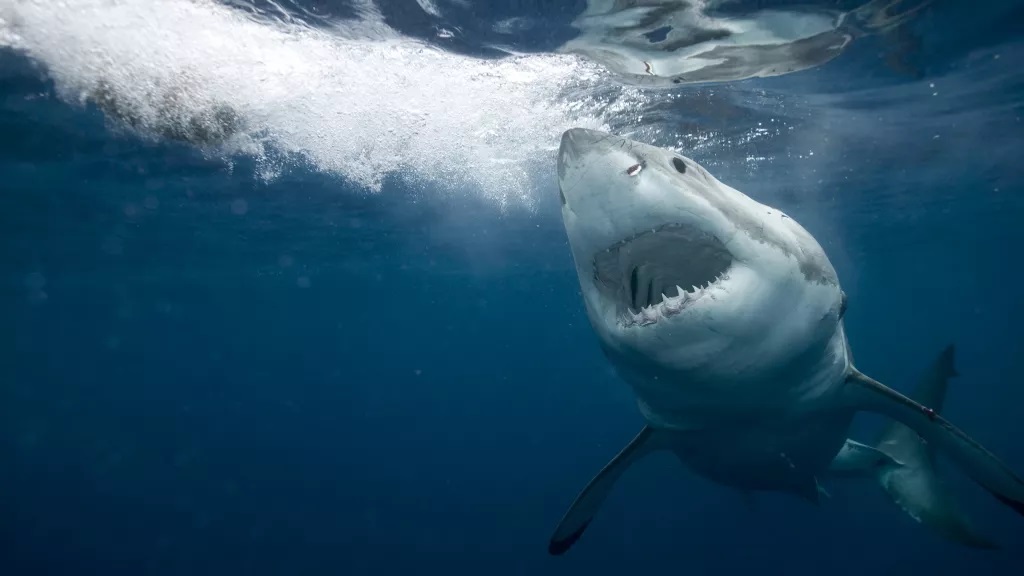
A 6- to 8-foot-long great white shark bit the right leg of a 35-year-old man body-boarding off Grey Whale Cove State Beach in San Mateo County, California, Saturday (June 26) morning. Though the bite was “severe,” the man was able to make his way to shore, Bay Area news site SFist reported.
There, a fisherman named Thomas Masotta heard the injured man calling for help; Masotta made a tourniquet with straps from his backpack and then called the authorities, Tracking Sharks reported.
This is the 39th shark attack bite in 2021 globally and the 20th in the United States, according to the informational website TrackingSharks.com. It’s the only public report of a great white shark bite in California; most of the U.S. attacks occurred in Florida (14) and Hawaii (five). The five attacks that were fatal occurred outside of the U.S.
This great white shark seems to have bitten down on the man’s leg before releasing its grip, something a shark might do when it realizes the human is not its preferred prey, Live Science previously reported. Paramedics brought the bitten man to the trauma unit of San Francisco General Hospital, TrackingSharks reported. Though Cal Fire tweeted that the man was initially in “serious condition,” he was released from the hospital the same day, said TrackingSharks.
The shark that bit the man this weekend was likely from a unique population of great whites that live off the U.S. West Coast. Though great white sharks are found across the globe, they are more concentrated off South Africa, Australia/New Zealand, the North Atlantic and Northeastern Pacific, according to Oceana, an ocean conservation organization.
The West Coast great whites live in an isolated population that congregates off the coast of California and Guadalupe Island, which is 150 miles (240 kilometers) off the west coast of Baja California, Mexico, Oceana said. These sharks spend half of the year around the California coast and the other half migrating far offshore near what is called the Pacific Gyre (likely to feed or breed) and sometimes to the Hawaiian archipelago, according to Oceana.
Though such attacks are scary, they are not common and dying from one is even less common. In fact, during an average person’s lifetime, their odds of death from a shark attack are 1 in 3.75 million, according to the University of Florida’s International Shark Attack File (IFAS). Compare that with a lifetime odds of death from a car accident, which is 1 in 84, IFAS said.





















